Erik Sviatchenko gained a new perspective after a skin cancer screening revealed a suspicious spot on his arm. Sviatchenko discusses the importance of sun protection and how his teammates work together to stay safe. To learn more, visit: MDAnderson.org/Soccer Request an appointment at MD Anderson by calling 1-877-632-6789 or online: My.MDAnderson.org/RequestAppointment
Philanthropy Newsroom

Texas college football icons Mack Brown and R.C. Slocum lauded at MD Anderson's A Conversation With a Living Legend® Houston
Led by college football coaching greats Mack Brown and R.C. Slocum, attendees at The University of Texas MD Anderson Cancer Center's A Conversation With a Living Legend® Houston united in the mission to end cancer on Feb. 3.
Only Possible Here, The Campaign to End Cancer
Visit MD Anderson's philanthropic campaign website to learn more about our fundraising priorities, events and news.
Previous Stories
2025
MD Anderson awards top honors to exceptional faculty
MD Anderson announces 10th cohort of Andrew Sabin Family Fellows
IBC Bank raises over $4 million for MD Anderson
1,400+ West Texans support MD Anderson at 39th Polo on the Prairie
Making Cancer History® Seminar returns to Midland
ExxonMobil donates $10 million to fund MD Anderson-led Be Well™ Beaumont initiative
MD Anderson Board of Visitors welcomes new members, honors new Life Member
MD Anderson's top nurses receive The Brown Foundation Award for Excellence in Oncology Nursing
MD Anderson's Boot Walk to End Cancer® raises more than $2 million at 10th anniversary event
Energy Transfer and Sunoco donate $2.1 million to support pediatric cancer research at MD Anderson
2024
Energy Transfer and Sunoco donate $2 million to support pediatric cancer research at MD Anderson
Brown Foundation Award for Excellence in Oncology Nursing honors Tiffany Richards
MD Anderson’s Boot Walk to End Cancer® raises $1.4 million
MD Anderson Board of Visitors celebrates growth and achievement
Michael Frumovitz, M.D., posthumously honored with Julie and Ben Rogers Award for Excellence
MD Anderson recognizes outstanding faculty
MD Anderson’s Andrew Sabin Family Fellows welcomes 2024 cohort
Belfer family’s $20 million donation invigorates neurodegeneration research at MD Anderson
Tennis greats Chris Evert and Martina Navratilova honored at A Conversation With a Living Legend®
Polo on the Prairie raises more than $1 million for MD Anderson
2023
Energy Transfer and Sunoco donate more than $2 million to support research at MD Anderson
Howard Meyers establishes Meyers Institute for Oncology Nursing with $25 million gift to MD Anderson
Excitement builds as participants prepare for MD Anderson’s Boot Walk to End Cancer®
Brown Foundation Award for Excellence in Oncology Nursing awarded to Agnes Hsu
MD Anderson Board of Visitors welcomes new members, honors new Life Members
Betty Kim, M.D., Ph.D., honored with Julie and Ben Rogers Award for Excellence
Celebration of Faculty Excellence honors extraordinary clinicians and researchers
MD Anderson announces 2023 class of Andrew Sabin Family Fellows
Howard and Susan Elias make $16.25 million gift to fund cancer neuroscience research at MD Anderson
Polo on the Prairie raises over $1 million for MD Anderson
Cancer survivor gives $10 million to speed translational research and clinical trials
MD Anderson prevention experts tackle smoking cessation in Corpus Christi
2022
Advanced practice nurse in Leukemia honored with $15,000 cash prize
Andrew Sabin Family Foundation doubles down on commitment to end cancer with $10M gift
Cancer survivors, supporters rally for in-person return of MD Anderson’s Boot Walk to End Cancer®
Timken Foundation advances mission to end cancer with $5 million gift to James P. Allison Institute
IBC Bank's Campaign to End Cancer Tops $2.2 Million
MD Anderson Board of Visitors welcomes new members
Annual awards recognize faculty for excellence in cancer research, clinical care and leadership
MD Anderson announces 2022 class of Andrew Sabin Family Fellows
$15,000 prize recognizes MD Anderson nursing administrator’s commitment to end cancer
H-E-B fundraising campaign raises $175,000
2022 McNair Scholar at MD Anderson Supported by $2.4 Million Gift from The McNair Foundation
McDougall family's $5 million gift brings new hope to those facing brain metastases
MD Anderson's Polo on the Prairie raises more than $1.1 million
2021
Myeloma Research supervisor honored with $15,000 cash prize
MD Anderson’s Boot Walk to End Cancer® raises funds for cancer research and patient programs
MD Anderson welcomes 28 new leaders to Board of Visitors
Kelly Nelson, M.D., honored with Julie and Ben Rogers Award for Excellence
State-wide campaign aims to top add to $5.8 million raised to-date for pediatric cancer programs
Early career researchers demonstrate commitment to innovation, mission to end cancer
Video Gallery
Patient & Supporter Stories
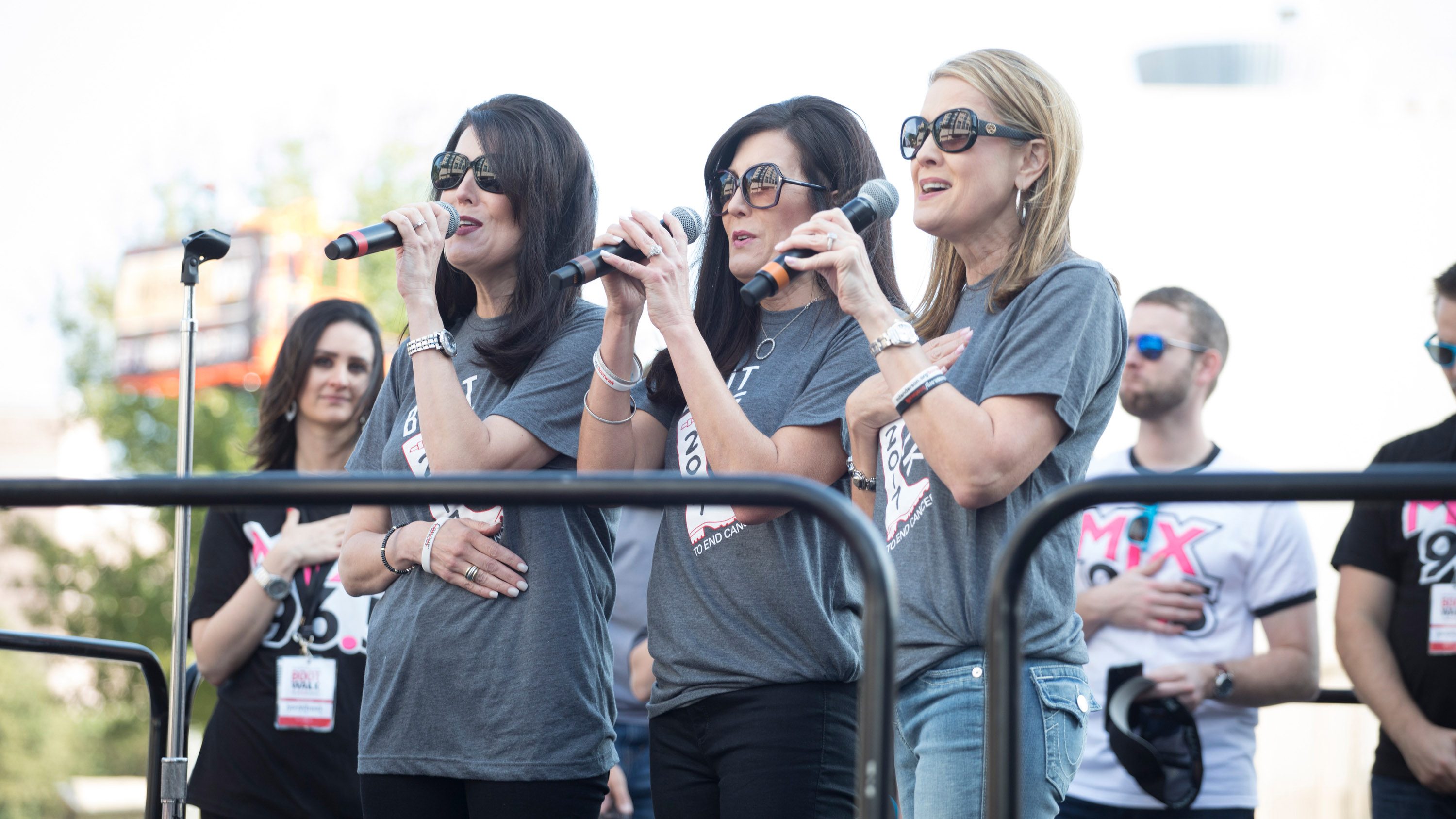
Why the Champion Sisters continue to give cancer the boot
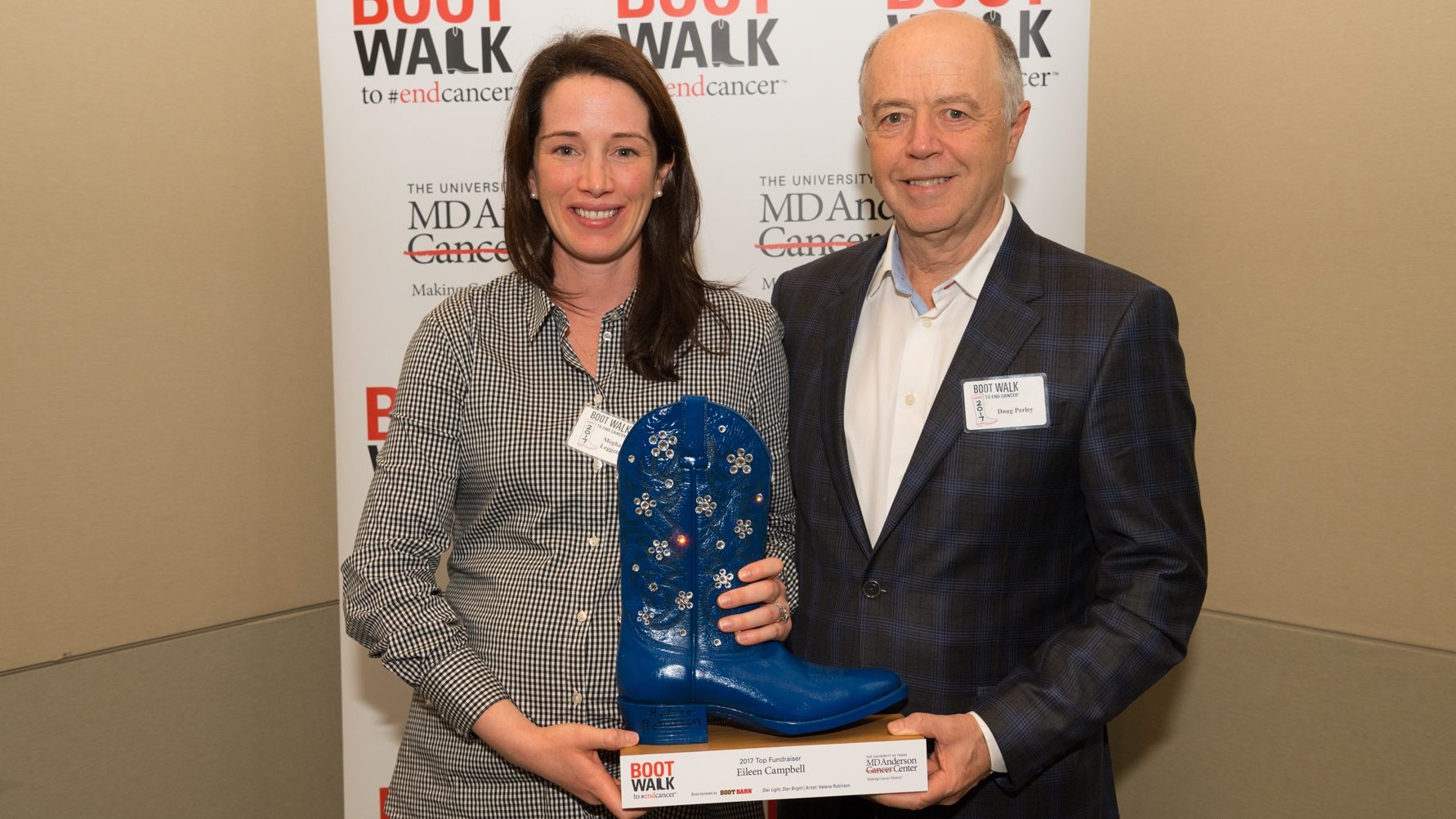
A family’s Boot Walk tradition honors their loved one’s legacy
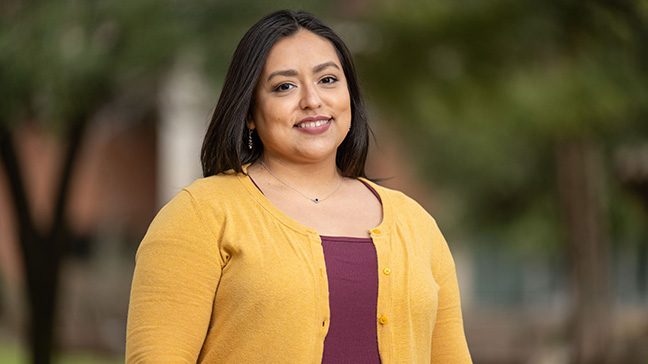
Ovarian cancer survivor, employee: Treatment at MD Anderson is ‘the best decision I ever made’

Three cancer survivors raise funds to support Colorado patients
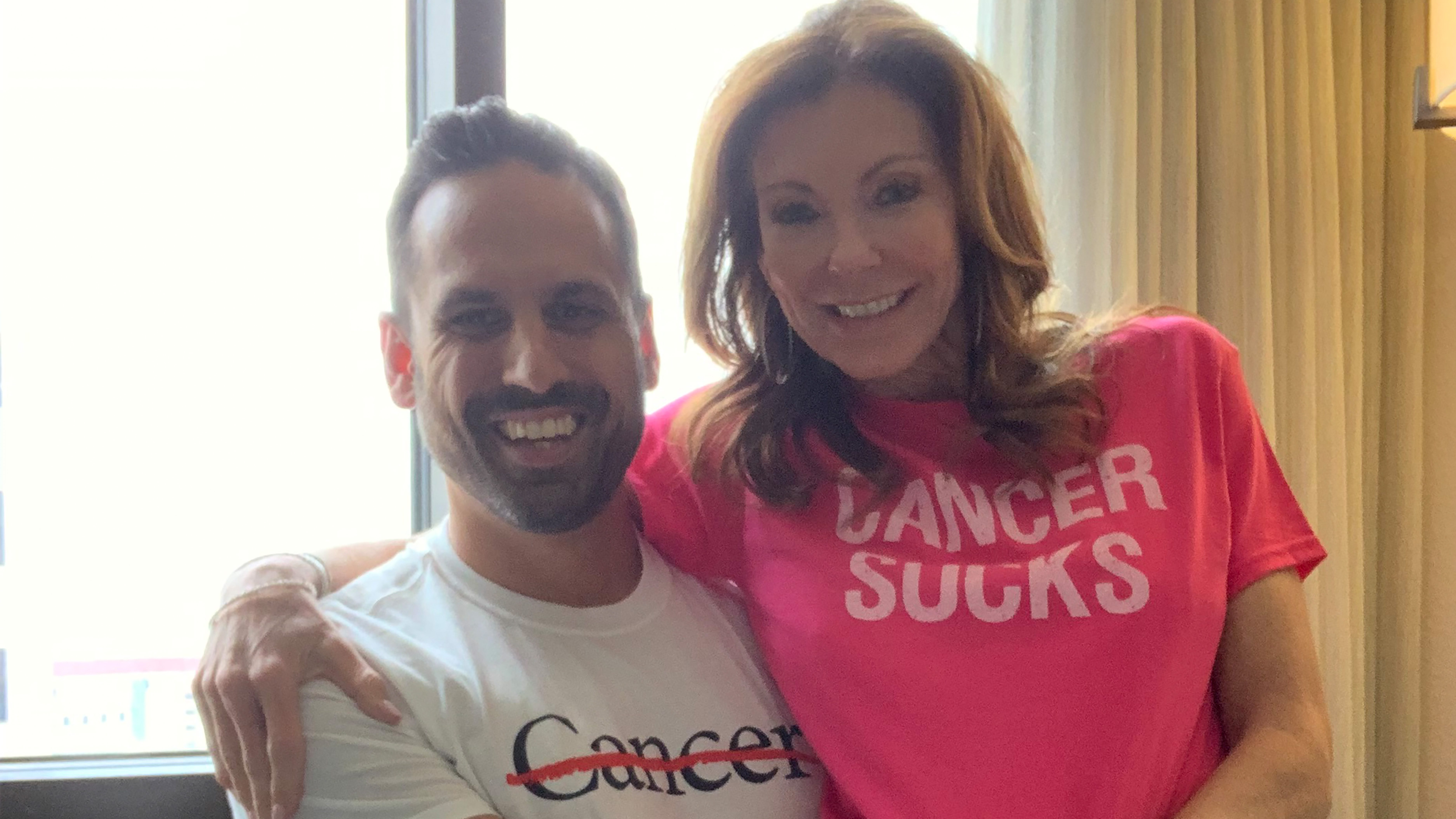
Testicular cancer survivor: Renewed perspective helped me heal
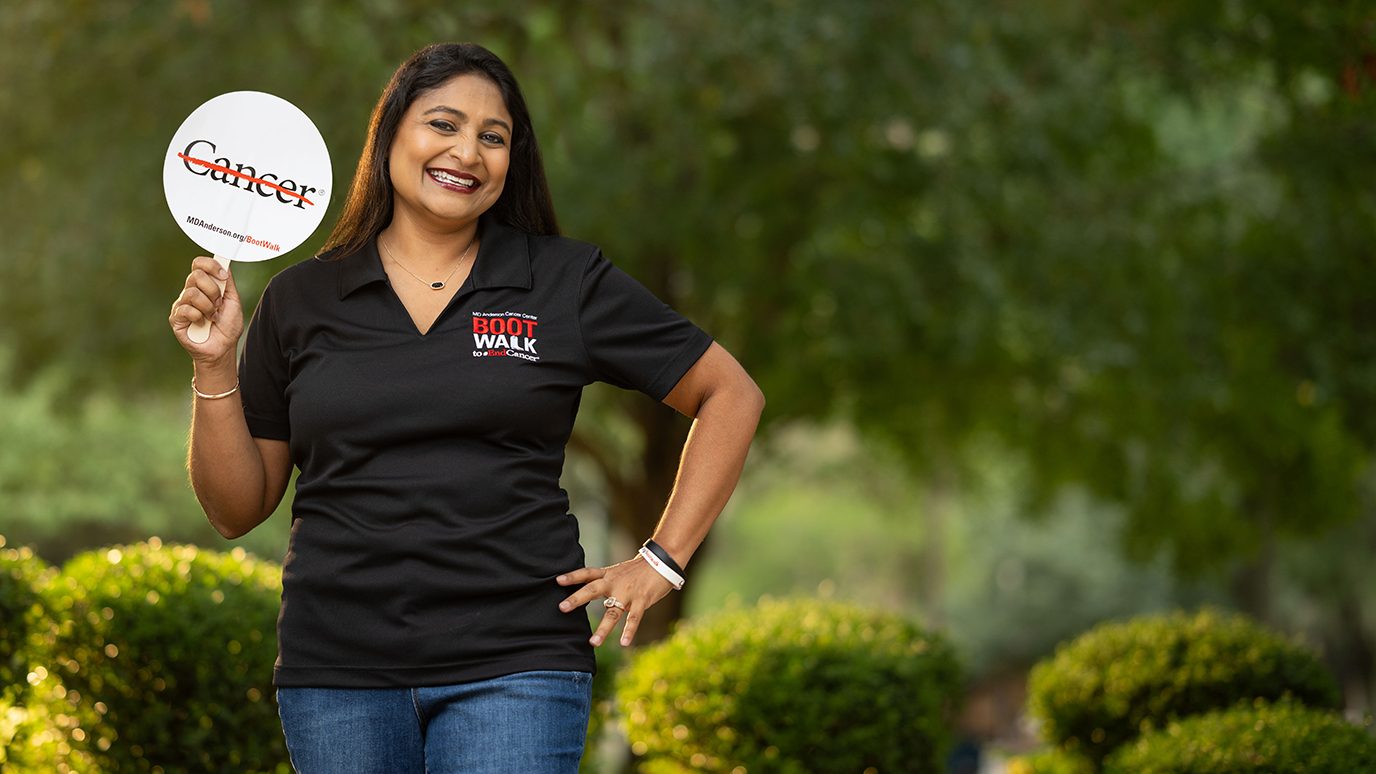
From breast cancer patient to chair of MD Anderson’s Boot Walk to End Cancer®
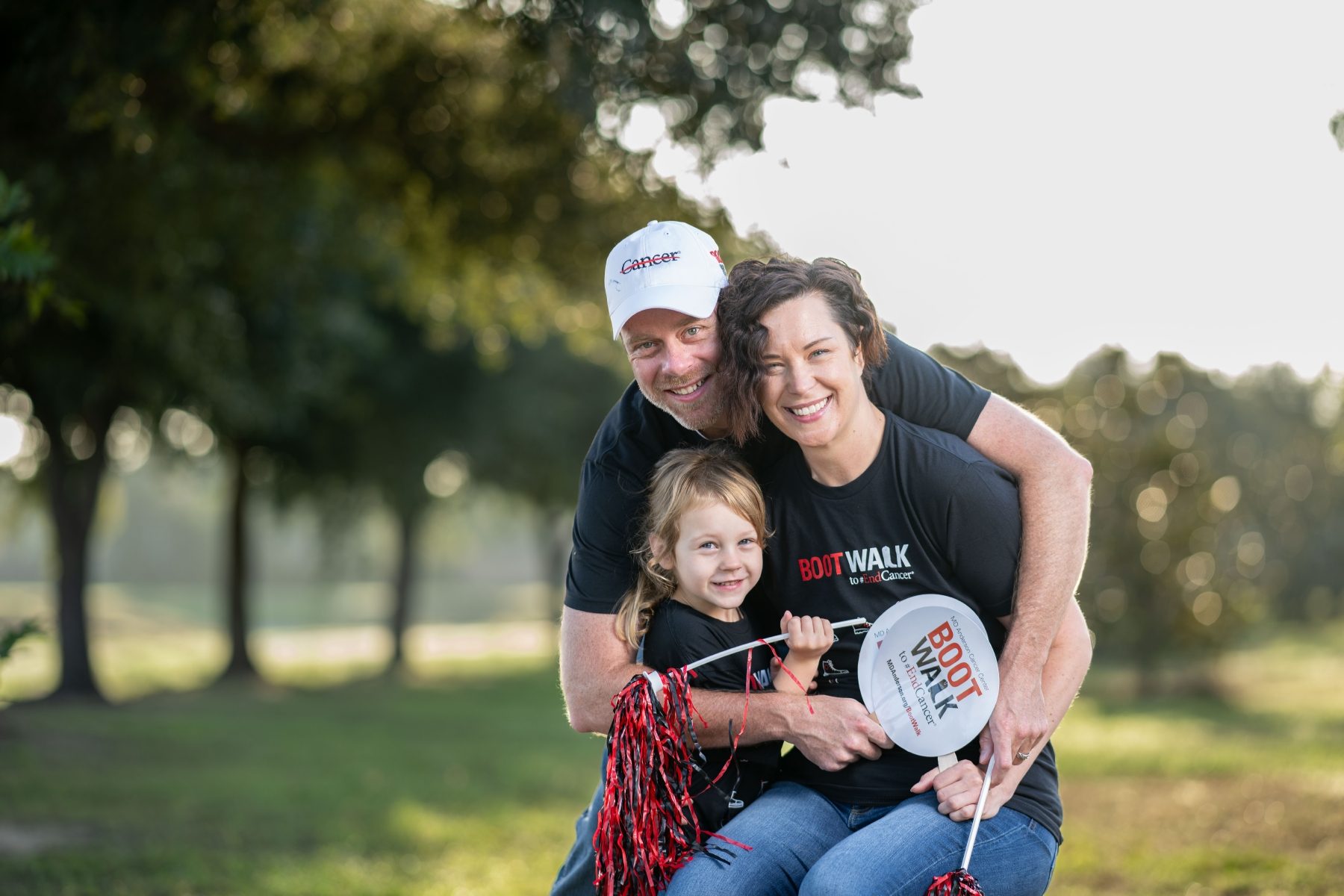
Inflammatory breast cancer survivor finds hope at MD Anderson
Help #EndCancer
Give Now
Donate Blood
Our patients depend on blood and platelet donations.
Shop MD Anderson
Show your support for our mission through branded merchandise.




























